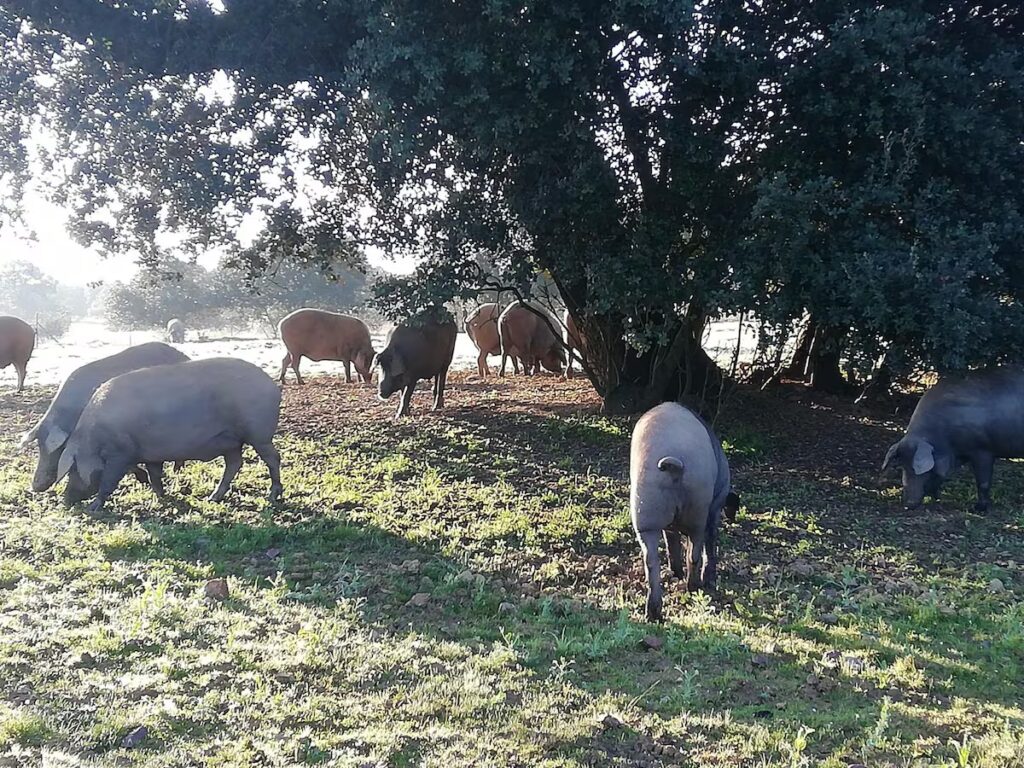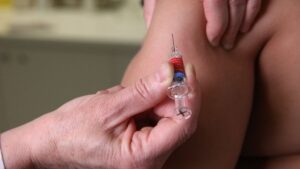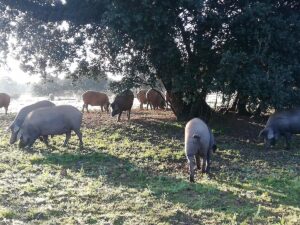
The war of the Iberian pig, or what amounts to the same thing, the struggle to accredit racial purity or true acorn ham, has opened a dispute between the designations of origin of Guijuelo, in Salamanca, with the other three in the country, the Andalusian ones of Jabugo and Los Pedroches and Dehesa de Extremadura. The reason was the decision of the Protected Designation of Origin (PDO) Guijuelo to reduce the minimum Iberian breed from 75% to 50% for its hams. In other words, it will be enough that the animal is 50% Iberian breed and the rest can be labeled as duroc. In Guijuelo they argue that placing the raw material at 50% Iberian does not diminish its value, but diversifies the offer and even makes it safer for the consumer.
The modification of the specification of the Iberian quality standard carried out by Guijuelo, published in the BOE on September 1st and which has the backing of the Ministry of Agriculture, has put the other three PDOs on a war footing, who consider it a frontal attack on the rest of Iberian ham and warn of the opacity of the market due to the downward trend in prices and the trivialization of the product. Furthermore, they fear that this measure opens the door to intensive farming, violating the principles that guide the Iberian pig, which has its main habitat in pastures.
“Accepting the certification of the 50% acorn-fed Iberian pig and increasing the breeding rate (from 15 to 100 pigs per hectare) of the ‘cebo de campo’ Iberian pig is something that allows intensive production within a designation of origin, something unthinkable in a differentiated quality”, says Juan Luis Ortiz, secretary general of the regulatory council of the PDO of Los Pedroches, of Córdoba, which last year it marketed 68,000 pieces of Iberian ham, 85% of which were acorn-fed. After the rejection of the appeal by the Ministry of Agriculture, which also asked for the precautionary suspension of the modification made by Guijuelo, Los Pedroches intends to go to court to defend the racial purity of the product and that grazing is the basis of its identity.
In the case of a 50% Iberian animal, racial purity means that the mother must be a 100% Iberian breed animal, but the father can be a pig of another breed, such as the Duroc, the most used in these crosses. Mixing the two breeds results in pigs that grow and gain weight faster. The Ministry of Agriculture claims that the change made by Guijuelo complies with European legislation because it does not affect the territorial link or limit marketing.
Teresa Rodríguez, general director of the Guijuelo PDO regulatory council, excludes that the measure introduced represents a reduction in product quality: “It’s exactly the opposite, what we do is improve quality standards.” And he gives as an example that they have added more months of maturation (they went from 730 to 1,000 days), control of the fatty acids of the pieces and fire marking to guarantee their traceability. Faced with criticism that they do not preserve racial purity, in Guijuelo (where last year they sold 150,000 pieces of Iberian ham) they believe that the real connection with the territory is not in the breed, but in the diet, management and natural curing of their area, although the mountain ranges of Seville, Huelva or Cadiz are also areas of influence for their hams.
The Guijuelo PDO is also criticized for favoring intensive farming to the detriment of pasture farming. María Pía Sánchez, president of the Spanish Federation of Dehesa (Fedehesa), argues: “The Iberian pig, as we know and admire it today, exists thanks to the dehesa. Without its acorns, its mosaic structure, its scattered trees and its specific form of extensive management, the Iberian pig would not have become the unique product it is today, nor would it have achieved the global prestige it enjoys.” Sánchez assures that the word Iberian has been distorted, since, with the exception of 100% Iberian acorn ham, he believes that “most of what is marketed today under the Iberian brand comes from animals raised in warehouses or on concrete platforms, which have never set foot on pasture or made montanera. And the result is absolute confusion for the consumer.”
“The name ‘Iberico’ refers to an indigenous breed that should be protected by the Administration with the same rigor with which, among others, the Merino sheep, the Retinta cow or the fighting bull are protected. A product that is not 100% Iberian of genetic origin should not be able to be sold as Iberian, nor should the link between the authentic acorn-fed Iberian and the pasture that supports it be obscured,” explains María Pía Sánchez, also a merino sheep breeder from Extremadura, a community that leads the breeding of Iberian pigs in Spain, with 40% of the total.
From the Savia Foundation, its president, Francisco Casero, learns that “the problem lies in having approved at the time a Quality Standard for Iberian pork which admits and attributes a certificate of nature to pigs crossed with duroc, a decision incomprehensibly accepted by Brussels”. This foundation has sent a letter to the Ministry of Agriculture, but also to the communities of Andalusia, Extremadura and Castilla y León, in which it asks that pure acorn-fed Iberian pork be eliminated from the Iberian Quality Standard and adheres to the Dehesa Law, “to protect the consumer from possible deception”. Meanwhile, Fundación Savia is calling for a change to the current quality standard so that only two types of products can be produced: Iberian cross-bred feed (50%), white label; and pure acorn-fed Iberian (100%), black label.
Spanish agri-food cooperatives have filed a complaint with the Ministry of Agriculture, Fisheries and Food regarding the need to carry out a complete review of the Iberian quality standard. “The current rule, as it is written, does not reflect the reality of the sector, makes the work of operators difficult and limits its transparent development”, underlines the body. And he adds that the objective of this review should focus on “providing greater transparency, adapting production and transformation needs to the current sectoral and commercial reality, and protecting both the social structure of the Iberian sector and the dehesa, an emblematic ecosystem of the territory”.





